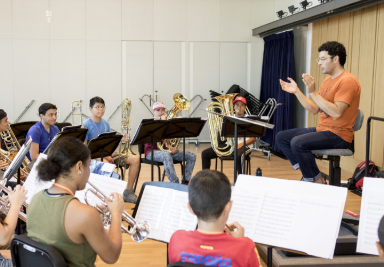Humanities programs in high school play a vital role in helping students understand the human experience. These courses focus on subjects such as literature, history, philosophy, languages, and the arts. By engaging with diverse ideas, cultures, and historical perspectives, students gain a deeper appreciation of the world and their place in it. These studies also help students make sense of current global events by connecting them with foundational human stories and traditions.
High school programs that emphasize the humanities encourage critical thinking, empathy, and effective communication. Whether through reading classical literature, analyzing historical events, or discussing ethical dilemmas, students are challenged to think beyond the surface and develop thoughtful interpretations. These experiences foster intellectual curiosity and an open-minded approach to learning. Additionally, students often improve their writing and speaking abilities, enabling them to share their ideas with clarity and confidence.
Many schools support humanities education through a variety of engaging formats. Honors and Advanced Placement (AP) classes allow motivated students to dive deeper into subjects like world history, literature, and government. These challenging courses not only prepare students for college-level expectations but also encourage deeper inquiry into important topics. Creative writing clubs, debate teams, and cultural appreciation groups also give students an outlet to express themselves and connect with others who share similar interests.
Project-based learning is another effective method used in humanities programs. Students may create multimedia presentations, write research papers, or participate in historical reenactments to bring topics to life. These activities build both academic and collaborative skills, giving students confidence and pride in their work. Some schools even organize cross-curricular projects where students combine elements of art, history, and literature to produce interdisciplinary exhibitions or performances.
In addition to classroom learning, field trips to museums, theaters, and historical sites help reinforce classroom content and connect students with real-world applications of what they’ve studied. These excursions can inspire lifelong interest in the humanities and provide memorable learning experiences. Guest speakers, such as authors, historians, or local community leaders, also add depth to the curriculum by sharing their experiences and perspectives.
Technology is increasingly being integrated into humanities programs. Digital archives, online literary databases, and virtual museum tours allow students to explore resources beyond the classroom. Many programs also encourage students to use digital tools for creating blogs, podcasts, and digital storytelling projects that showcase their understanding of key themes and issues.
Furthermore, the humanities help students understand the importance of civic responsibility and ethical leadership. Lessons on historical movements, social justice, and philosophical reasoning encourage students to engage with contemporary issues and become informed citizens. These programs help shape students into thoughtful, compassionate individuals who value diversity and social progress.
Ultimately, exploring the humanities through high school programs gives students valuable tools for personal and academic growth. These programs help learners develop an informed worldview, appreciate different perspectives, and communicate ideas effectively—skills that are essential for success in college, careers, and civic life. As schools continue to enhance humanities offerings, they empower students to think critically, act responsibly, and contribute meaningfully to the world around them.














